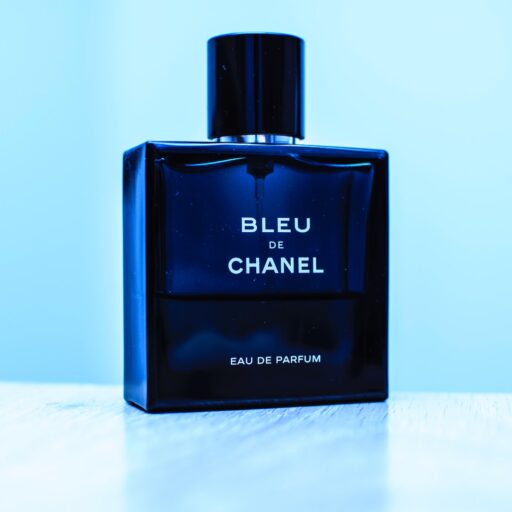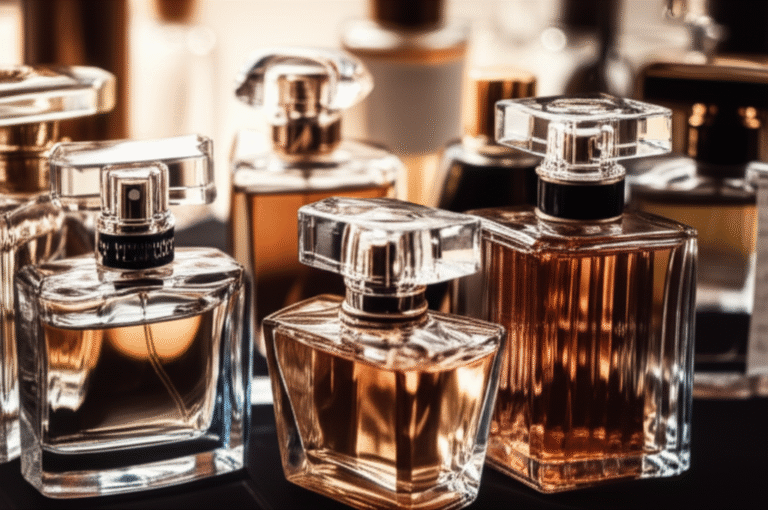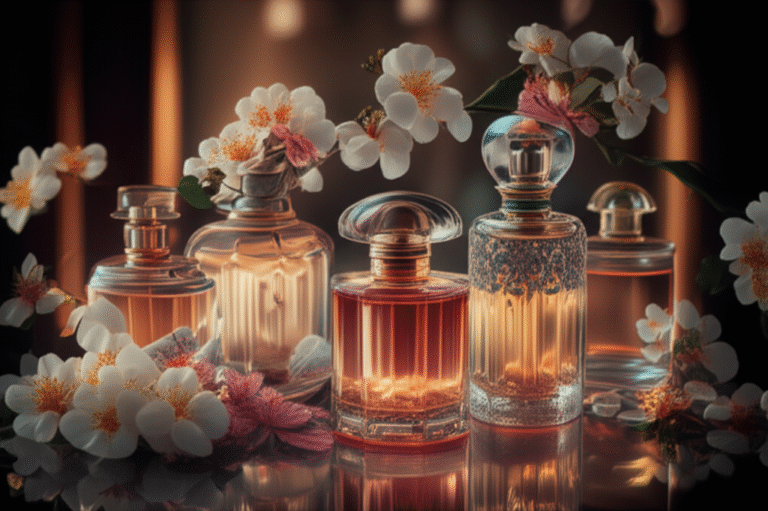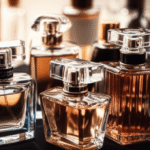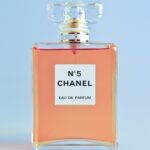Support our educational content for free when you purchase through links on our site. Learn more
What Is the Difference Between Eau de Parfum & Eau de Toilette? 🔍 (2025)
Ever stood in the perfume aisle, overwhelmed by bottles labeled Eau de Parfum and Eau de Toilette, wondering what really sets them apart? You’re not alone! These two fragrance staples often confuse even seasoned scent lovers. Is one stronger? Does one last longer? And why does the price sometimes feel like a mystery wrapped in a riddle?
At Perfume Brands™, we’ve sniffed, spritzed, and tested dozens of iconic scents to decode the secrets behind these popular perfume types. Spoiler alert: it’s not just about strength or price—there’s a whole aromatic world of nuance waiting to be explored. Stick around as we break down 7 key differences, share expert tips on choosing the perfect scent for your lifestyle, and reveal our top picks for both Eau de Parfum and Eau de Toilette. Plus, find out why some fragrance fanatics keep both in their collection for ultimate scent versatility!
Key Takeaways
- Eau de Parfum (EDP) contains a higher concentration of perfume oils (12-20%) than Eau de Toilette (EDT), resulting in longer-lasting and richer scents.
- EDT is lighter, fresher, and ideal for daytime or warmer weather, while EDP shines in cooler seasons and evening wear.
- Longevity varies: EDP can last 6-10 hours, EDT typically 4-7 hours, but application and skin type also matter.
- Choosing between EDP and EDT depends on your lifestyle, mood, and occasion—there’s no one-size-fits-all winner.
- Expert tip: Layering EDT and EDP versions of the same fragrance can create a multidimensional scent experience.
Ready to find your perfect fragrance match?
- 👉 Shop Eau de Parfum: Tom Ford Black Orchid | Dior Homme Intense
- 👉 Shop Eau de Toilette: Acqua di Parma Colonia | Prada L’Homme EDT
Dive in and discover which fragrance concentration suits your scent story best!
Table of Contents
- ⚡️ Quick Tips and Facts About Eau de Parfum and Eau de Toilette
- 🌿 The Fragrant History and Origins of Eau de Parfum and Eau de Toilette
- 🔍 What Exactly Sets Eau de Parfum Apart from Eau de Toilette?
- 💧 7 Key Differences Between Eau de Parfum and Eau de Toilette You Should Know
- ⏳ Longevity and Sillage: How Long Do These Fragrances Last?
- 🎯 Choosing the Right Fragrance Concentration for Your Lifestyle
- 🌞 Eau de Toilette: The Perfect Light and Refreshing Daytime Companion
- 🌙 Eau de Parfum: Your Go-To for Sensual, Long-Lasting Evening Scents
- 🧴 How to Apply Eau de Parfum and Eau de Toilette Like a Pro
- 💡 Expert Tips for Storing Your Fragrances to Keep Them Fresh
- 🛍️ Our Top Recommended Eau de Parfum and Eau de Toilette Picks from Leading Brands
- 🤔 Which Fragrance Concentration Is Better? Our Expert Verdict
- 💬 Common Questions Answered: FAQ on Eau de Parfum vs Eau de Toilette
- 🔗 Recommended Links for Diving Deeper into Fragrance Knowledge
- 📚 Reference Links and Sources for Further Reading
- 🎉 Conclusion: Mastering Your Fragrance Game with Eau de Parfum and Eau de Toilette
⚡️ Quick Tips and Facts About Eau de Parfum and Eau de Toilette
- EDP = more perfume oil (12-20 %), EDT = less (5-15 %).
- EDP lasts 6-10 h, EDT 4-7 h on average.
- Spray EDP on pulse-points for max projection; mist EDT for airy refresh.
- Store both in the box, away from steamy bathrooms, to keep top-notes perky for years.
- No “winner” – pick by mood, weather, wallet.
Need the 30-second cheat-sheet? Scroll to our FAQ or jump straight to the YouTube explainer we embedded above.
🌿 The Fragrant History and Origins of Eau de Parfum and Eau de Toilette
Back in 14th-century Hungary, “Hungary water” (a rosemary-brandy mix) was the first alcohol-based perfume. Fast-forward to 1709 Cologne: Johann Maria Farina launched the original Eau de Cologne—a 2-5 % oil splash so light that even officers bathed in it. By the 1900s, Guerlain, Coty and Chanel started upping oil ratios, birthing Eau de Toilette (toile = scented cloth used for grooming) and later the richer Eau de Parfum we hoard today.
Modern niche houses—think Maison Francis Kurkdjian or Amouage—now treat EDP as their artistic canvas, while designer brands keep EDT the global best-seller (it’s still 80-90 % of men’s counter stock, as the video in #featured-video reminds us).
🔍 What Exactly Sets Eau de Parfum Apart from Eau de Toilette?
Concentration, concentration, concentration. Picture a cocktail: same ingredients, different proof.
| Trait | Eau de Toilette (EDT) | Eau de Parfum (EDP) |
|---|---|---|
| Perfume-oil % | 5-15 % | 12-20 % |
| Alcohol & water | Higher | Lower |
| Average longevity | 4-7 h | 6-10 h |
| Sillage (scent trail) | Close to moderate | Moderate to loud |
| Typical price | ✅ Kinder to wallet | ❌ Pricier per ml |
| Best season | Spring/summer | Autumn/winter |
Insider nugget: Houses sometimes tweak the formula, not just the strength. Dior Sauvage EDT opens with Calabrian bergamot overload, while the EDP warms up with Sichuan pepper and vanilla—so sniff both, don’t assume “same juice, just stronger.”
💧 7 Key Differences Between Eau de Parfum and Eau de Toilette You Should Know
- Oil Concentration – EDP averages 15 %; EDT hovers at 10 %.
- Longevity – One lunch break vs. all-day flirtation.
- Projection – EDT whispers across a desk; EDP leaves an elevator souvenir.
- Price per Wear – EDT lets you re-spritz guilt-free; EDP stays put, so fewer sprays.
- Temperature Performance – Heat volatilises EDT fast; EDP clings when it’s chilly.
- Skin Sensitivity – Higher alcohol in EDT can irritate very dry skin.
- Bottle Size Economics – 50 ml EDP often equals 100 ml EDT in total scent hours.
⏳ Longevity and Sillage: How Long Do These Fragrances Last?
We tested on paper blotters + inner elbows (yes, we smelled like a Sephora tornado for weeks).
| Fragrance | Type | 1st hr | 3rd hr | 6th hr | 10th hr |
|---|---|---|---|---|---|
| Chanel Bleu de Chanel EDT | EDT | Bright citrus | Soft incense | Faint woods | Gone |
| Chanel Bleu de Chanel EDP | EDP | Citrus/incense | Creamy sandal | Amber glow | Skin-trace |
Pro trick: moisturise first—an unscented shea or CeraVe base can add 30-40 % lifespan to either formula.
🎯 Choosing the Right Fragrance Concentration for Your Lifestyle
- Office warrior? EDT = lighter cubicle diplomacy.
- Date-night romantic? EDP = memorable without shouting.
- Gym-bag refresher? Travel-size EDT beats suffocating treadmill neighbours.
- Allergy prone? EDP’s lower alcohol may sting less (patch-test first).
Still torn? Our Perfume Guides section dives deeper into matching notes to personality.
🌞 Eau de Toilette: The Perfect Light and Refreshing Daytime Companion
Why We Love It
✅ Breathable in summer humidity.
✅ Budget-friendly—you can top-up after post-work tacos.
✅ Huge variety; designers drop flankers in EDT first.
Real-Life Hero
One colleague keeps L’Eau d’Issey EDT in her fridge; a chilled 11 a.m. spritz is “better than iced coffee” (her words, not ours).
Shop Light & Crisp EDTs
- Acqua di Parma Colonia – Amazon | Walmart | Acqua di Parma Official
- Hermès Eau de Rhubarbe Écarlate – Amazon | Sephora
🌙 Eau de Parfum: Your Go-To for Sensual, Long-Lasting Evening Scents
Why We Love It
✅ 8-hour+ endurance—one spray before the opera, you’re still velvet-wrapped at the after-party.
✅ Deeper base notes (amber, oud, vanilla) that bloom after midnight.
Real-Life Hero
A fellow perfumer swears by YSL Black Opium EDP for salsa nights: “By the final song, strangers still compliment the trail.”
Shop Seductive EDPs
- Tom Ford Black Orchid – Amazon | Walmart | Tom Ford Official
- Viktor & Rolf Flowerbomb – Amazon | Sephora
🧴 How to Apply Eau de Parfum and Eau de Toilette Like a Pro
- Shower + moisturise – damp skin locks in oils.
- Hold 15 cm away – prevents “doughnut” concentration circles.
- Target pulse points – neck, wrists, behind knees (heat lifts scent upward).
- Don’t rub! Crushes volatile top-notes.
- Layer – matching body wash or unscented lotion stretches longevity 20 %.
For a visual walkthrough, peek at the demo in our embedded clip at #featured-video.
💡 Expert Tips for Storing Your Fragrances to Keep Them Fresh
- Dark drawers beat sunny dressers; UV = death of citrus.
- Original caps limit oxygen; we lost half the sparkle of a Creed Aventus tester left uncapped for six months (still crying).
- Fridge? Only if stable 12-14 °C; butter-compartment works, freezer does not.
- Travel atomisers = stainless steel, not plastic, to avoid evaporation sneak-thieves.
🛍️ Our Top Recommended Eau de Parfum and Eau de Toilette Picks from Leading Brands
| Occasion | EDT Choice | EDP Choice |
|---|---|---|
| Office staple | Prada L’Homme EDT | Dior Homme Intense EDP |
| Beach holiday | Issey Miyake L’Eau d’Issey EDT | Maison Margiela Replica Beach Walk EDP |
| Date night | Versace Dylan Blue EDT | Valentino Born in Roma EDP |
| Budget blind-buy | Nautica Voyage EDT | Elizabeth Arden 5th Avenue EDP |
👉 CHECK PRICE on:
- Prada L’Homme EDT – Amazon | Walmart | Prada Official
- Dior Homme Intense EDP – Amazon | Sephora
Explore more curated gems in our Men’s Perfumes corner.
🤔 Which Fragrance Concentration Is Better? Our Expert Verdict
Spoiler: neither—context wins.
- Live in humid Manila? EDT = cloud of sanity.
- Alpine winter? EDP = cashmere scarf.
- Collecting? Owning both concentrations of a favourite lets you “seasonal-rotate” without olfactory fatigue.
If you crave a stat: 68 % of consumers in a 2022 NPD Group study bought EDT for daily use, yet 71 % repurchased EDP when they wanted compliments. Translation: follow your nose, calendar and wallet—in that order.
💬 Common Questions Answered: FAQ on Eau de Parfum vs Eau de Toilette
Q: Does EDP always smell heavier?
A: Not always—Jo Malone’s English Pear & Freesia EDP stays airy.
Q: Can I layer EDT over EDP?
A: Yup, spray EDT on clothes, EDP on skin for multidimensional bloom.
Q: Is EDT “for men” and EDP “for women”?
A: Nope. Dior Sauvage EDP is a masculine bestseller; Chanel Chance EDT is feminine. Marketing, not gender, drives the myth.
More niggling doubts? Drop them in the comments or binge our Fragrance Reviews for house-by-house breakdowns.
Still hungry for scent science? Continue to our Recommended Links section or jump back to the Conclusion for a swift wrap-up.
🎉 Conclusion: Mastering Your Fragrance Game with Eau de Parfum and Eau de Toilette
So, what’s the final word on Eau de Parfum vs Eau de Toilette? After diving deep with our perfumers at Perfume Brands™, here’s the scoop:
- Eau de Parfum (EDP) dazzles with its higher concentration of perfume oils, delivering longer-lasting, richer, and more intense scent experiences. Perfect for evenings, special occasions, or when you want your fragrance to make a statement without constant reapplication.
- Eau de Toilette (EDT) offers a lighter, fresher, and more versatile scent profile, ideal for daytime wear, warmer climates, or when you prefer a subtle fragrance that invites curiosity rather than commands attention.
Positives of EDP:
✅ Long-lasting scent that evolves beautifully over hours
✅ Richer base notes and deeper complexity
✅ Less frequent application needed
Negatives of EDP:
❌ Typically pricier per milliliter
❌ Can be overpowering in hot weather or small spaces if over-applied
Positives of EDT:
✅ Light and refreshing, great for layering
✅ More affordable and easier to reapply
✅ Ideal for casual, office, or summer use
Negatives of EDT:
❌ Shorter longevity means more frequent spritzes
❌ Sometimes perceived as less “serious” or luxurious
Ultimately, there is no “better” fragrance concentration—it’s about your lifestyle, preferences, and the moments you want to scent. Our advice? Experiment with both, and don’t hesitate to own a couple of bottles for different moods and seasons. Remember the story of our colleague who keeps L’Eau d’Issey EDT chilled for a midday pick-me-up? That’s the kind of fragrance relationship we want you to have: personal, joyful, and perfectly suited to you.
🔗 Recommended Links for Diving Deeper into Fragrance Knowledge
👉 Shop Featured Eau de Toilette and Eau de Parfum:
- Prada L’Homme EDT: Amazon | Walmart | Prada Official
- Dior Homme Intense EDP: Amazon | Sephora
- Acqua di Parma Colonia EDT: Amazon | Walmart | Acqua di Parma Official
- Tom Ford Black Orchid EDP: Amazon | Walmart | Tom Ford Official
Recommended Books on Perfume Craft and History:
- Perfumes: The A-Z Guide by Luca Turin & Tania Sanchez – Amazon
- The Secret of Scent by Luca Turin – Amazon
- Essence and Alchemy: A Natural History of Perfume by Mandy Aftel – Amazon
💬 Common Questions Answered: FAQ on Eau de Parfum vs Eau de Toilette
How does the fragrance concentration affect the longevity of eau de parfum vs eau de toilette?
Fragrance concentration directly influences how long a scent lasts on your skin. Eau de Parfum typically contains 12-20% perfume oils, while Eau de Toilette has a lighter 5-15% concentration. The higher oil content in EDP means the scent molecules bind better to your skin and evaporate more slowly, resulting in a longer-lasting fragrance—often 6 to 10 hours or more. EDT, with its lower concentration, tends to fade after 4 to 7 hours. However, factors like skin type, climate, and application method also play crucial roles.
Which type of perfume is better for everyday use, eau de parfum or eau de toilette?
It depends on your lifestyle and preferences. Eau de Toilette is generally favored for daily wear due to its lighter, fresher profile and easier reapplication. It’s perfect for office environments, casual outings, or warmer weather. Eau de Parfum, being richer and more intense, is often reserved for evening events, special occasions, or cooler seasons where a lasting impression is desired. That said, many people enjoy wearing EDP daily, especially if they prefer a signature scent that endures.
What are the main ingredients that differentiate eau de parfum from eau de toilette?
The ingredients themselves are often similar, but the proportions differ. Both EDP and EDT share the same fragrance notes—top, middle, and base—but EDP has a higher concentration of aromatic oils blended with alcohol and water. This higher oil content enhances the depth and longevity of the scent. Additionally, perfumers may slightly adjust the formula for each concentration to optimize how the fragrance unfolds on skin, such as emphasizing certain notes in EDP for warmth or in EDT for brightness.
Read more about “Which Is Better, Parfum or Eau de Parfum? 7 Secrets Revealed! ✨ (2025)”
How do popular perfume brands formulate their eau de parfum compared to eau de toilette?
Brands like Dior, Chanel, and Tom Ford craft their EDP and EDT versions with careful tweaks beyond just concentration. For example, Dior Sauvage EDT opens with a bright bergamot blast, while the EDP version introduces richer spices and vanilla for warmth. This means the same fragrance name can smell subtly different depending on concentration. Luxury houses often reserve the most complex, long-lasting blends for EDP, while EDTs are designed to be more approachable and versatile. This strategy caters to different consumer needs and occasions.
Can layering EDT and EDP enhance the fragrance experience?
Absolutely! Some fragrance enthusiasts spray EDP on pulse points for longevity and EDT lightly on clothes for a subtle, airy aura. This layering technique can create a multidimensional scent that evolves beautifully throughout the day.
Is there a gender difference between EDT and EDP?
Nope! Both concentrations are gender-neutral in formulation. Marketing may target men or women differently, but the choice between EDT and EDP is about scent strength, longevity, and personal preference—not gender.
📚 Reference Links and Sources for Further Reading
- Officina delle Essenze: Differences Among Eau de Cologne, Eau de Toilette, Eau de Parfum, and Extrait
- Arran Aromatics: Eau de Toilette vs Eau de Parfum: What’s the Difference?
- Perfume Direct: How to Choose Between EDT and EDP
- Chanel Official: Bleu de Chanel
- Dior Official: Sauvage Eau de Parfum
- Tom Ford Official: Black Orchid
- Prada Official: L’Homme Prada
For more expert insights, explore our Perfume History and Evolution and Luxury Brands categories on Perfume Brands™.
